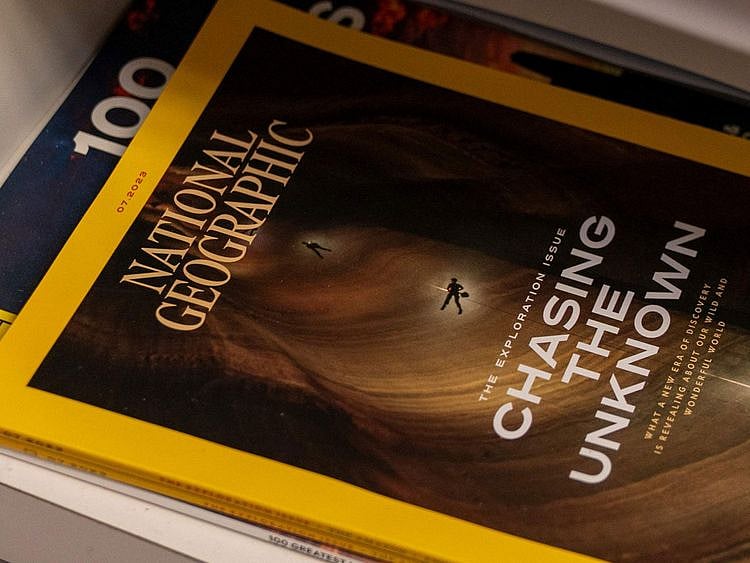National Geographic will end newsstand sales of magazine next year
At its peak in the late 1980s, National Geographic reached 12 million subscribers in US

The familiar yellow-bordered cover of the monthly National Geographic will no longer be for sale on newsstands starting next year, part of cutbacks affecting the venerable magazine.
The company's focus is turning to its digital product and it will offer special editions on newsstands, a spokesman said on Thursday. Subscribers will still get a printed copy each month.
Newsstand sales account for a small percentage of the magazine's monthly circulation of just below 1.8 million copies, the magazine said.
Even a magazine that started publishing in 1888 isn't immune to financial headwinds affecting the media. Known best for its colorful photography from around the world, the magazine was started more than a century ago by the National Geographic Society, which supports science and exploration.
Control of National Geographic has changed twice in the past decade, first in a sale to 20th Century Fox before being acquired by the Walt Disney Corp. in 2019. It has been hit by a series of layoffs.
Craig Welch posted on Twitter on Wednesday that his new issue of the magazine just arrived, featuring his 16th and last feature as a senior writer for the magazine.
“NatGeo is laying off all of its staff writers,” he wrote.
The magazine said while it's accurate it no longer has anyone with the title of “writer” anymore, it has people who both write and edit. Instead, it will turn to non-staffers to author stories. The changes occurred as the result of a reorganization in April.
The company would not discuss how many people lost their jobs.
“National Geographic will continue to publish a monthly magazine that is dedicated to exceptional multi-platform storytelling with cultural impact,” spokesman Chris Albert said. “Staffing changes will not change our ability to do this work, but rather give us more flexibility to tell different stories and meet our audiences where they are across our many platforms.”
“Any insinuation that the recent changes will negatively impact the magazine, or the quality of our storytelling, is simply incorrect,” he said.
Sign up for the Daily Briefing
Get the latest news and updates straight to your inbox
Network Links
GN StoreDownload our app
© Al Nisr Publishing LLC 2025. All rights reserved.